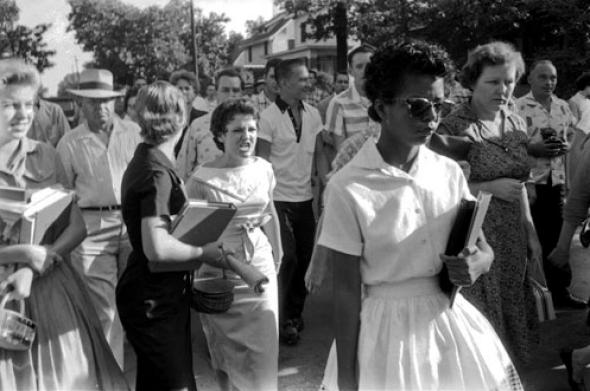Shrove Tuesday Traditions: The Story Behind Pancake Day

Table of Contents
The Religious Origins of Shrove Tuesday
Shrove Tuesday holds a significant place within the Christian liturgical calendar. It's the day before Ash Wednesday, which marks the beginning of Lent, a 40-day period of fasting, prayer, and penance leading up to Easter. The word "Shrove" itself comes from the Old English word "shriven," meaning to confess. This highlights the central religious aspect of Shrove Tuesday: the act of "shriving," or confession and absolution, before embarking on the Lenten season.
This practice of confession and cleansing before Lent is deeply rooted in Christian tradition. It represents a symbolic spiritual preparation, allowing individuals to approach the penitential season with a clean conscience. This emphasis on spiritual renewal connects Shrove Tuesday to Mardi Gras, the French term for "Fat Tuesday," a festive celebration marking the last day of revelry before the solemn period of Lent. Mardi Gras celebrations, often characterized by parades, costumes, and feasting, share a common ancestor with Shrove Tuesday traditions.
- Preparation for Lent: Shrove Tuesday was traditionally a time to use up rich foods like eggs, butter, and sugar before the restrictions of Lent began.
- Symbolic Cleansing: The act of confession and the consumption of rich foods symbolized a cleansing and a release before a period of spiritual discipline.
- Historical Significance: The observance of Shrove Tuesday varies across different Christian denominations, though the underlying theme of preparation for Lent remains consistent.
The Pancake Tradition: A Global Phenomenon
The consumption of pancakes on Shrove Tuesday is a global phenomenon, deeply intertwined with the day's religious origins. Historically, the tradition stemmed from the need to use up rich ingredients like eggs, milk, and butter before the Lenten fast. These ingredients were often forbidden during Lent, making Shrove Tuesday the perfect opportunity to enjoy them one last time before the period of abstinence.
However, the pancake itself takes on many forms globally. While the basic concept remains the same – a flat cake made from batter – the recipes and ingredients vary significantly across cultures.
- Traditional Recipes: From thin, delicate crêpes in France to fluffy American pancakes and the slightly thicker English pancakes, the variations are endless.
- Key Ingredients: Eggs, milk, and butter form the base of most pancake recipes, but additions such as sugar, spices, and various fruits are common across different cultures.
- Modern Adaptations: Today, the humble pancake has seen a creative explosion of fillings and toppings, ranging from savory options like cheese and ham to decadent sweet combinations involving chocolate, fruits, and whipped cream. Pancake Day has become a day for culinary creativity.
Shrove Tuesday Traditions Beyond Pancakes
While pancakes are undeniably the star of many Shrove Tuesday celebrations, the day's customs extend far beyond the kitchen. Numerous traditions and festivities are associated with Shrove Tuesday, highlighting its rich cultural significance.
The famous Pancake races, often involving women racing while flipping pancakes, are a beloved tradition in many parts of the world. These races add an element of fun and friendly competition to the day's celebrations. Beyond pancake races, various regions boast unique traditions. Some communities may hold parades, festivals, or special church services, while others might focus on more intimate family gatherings centered on shared meals and family activities.
- Pancake Races: From Olney, England to Liberal, Kansas, pancake races are a popular and often hilarious Shrove Tuesday event.
- Other Festivities: Parades, fairs, and community gatherings often mark the day, adding a festive atmosphere to the celebrations.
- Cultural Significance: The emphasis on community and shared experiences underscores the social and cultural importance of Shrove Tuesday.
Conclusion
Shrove Tuesday, or Pancake Day, is a vibrant celebration with deep historical and religious roots. From its origins in pre-Lenten preparations to the global phenomenon of pancake consumption, the day offers a unique blend of tradition, community, and delicious food. The diverse customs surrounding Shrove Tuesday highlight its enduring cultural significance and its ability to adapt and evolve across different societies. This Shrove Tuesday, why not delve deeper into the traditions? Research the history of Shrove Tuesday in your region, try a new pancake recipe, or participate in a local Shrove Tuesday event. Embrace the spirit of this special day and celebrate the rich history and delicious treats of Shrove Tuesday! Learn more about Shrove Tuesday traditions near you and make this year's Pancake Day the best one yet!

Featured Posts
-
 School Desegregation Order Terminated A New Era For Education
May 03, 2025
School Desegregation Order Terminated A New Era For Education
May 03, 2025 -
 Reakcja Zacharowej Na Sytuacje Wokol Emmanuela I Brigitte Macron This Uses A Slightly Different Language Polish But Is Included As A Potential Option If There Was A Misunderstanding Of The Language Request
May 03, 2025
Reakcja Zacharowej Na Sytuacje Wokol Emmanuela I Brigitte Macron This Uses A Slightly Different Language Polish But Is Included As A Potential Option If There Was A Misunderstanding Of The Language Request
May 03, 2025 -
 A Place In The Sun Tips For Buying Property Abroad
May 03, 2025
A Place In The Sun Tips For Buying Property Abroad
May 03, 2025 -
 X 6 9
May 03, 2025
X 6 9
May 03, 2025 -
 Nigel Farage Under Fire For Controversial Zelenskyy Comments
May 03, 2025
Nigel Farage Under Fire For Controversial Zelenskyy Comments
May 03, 2025
